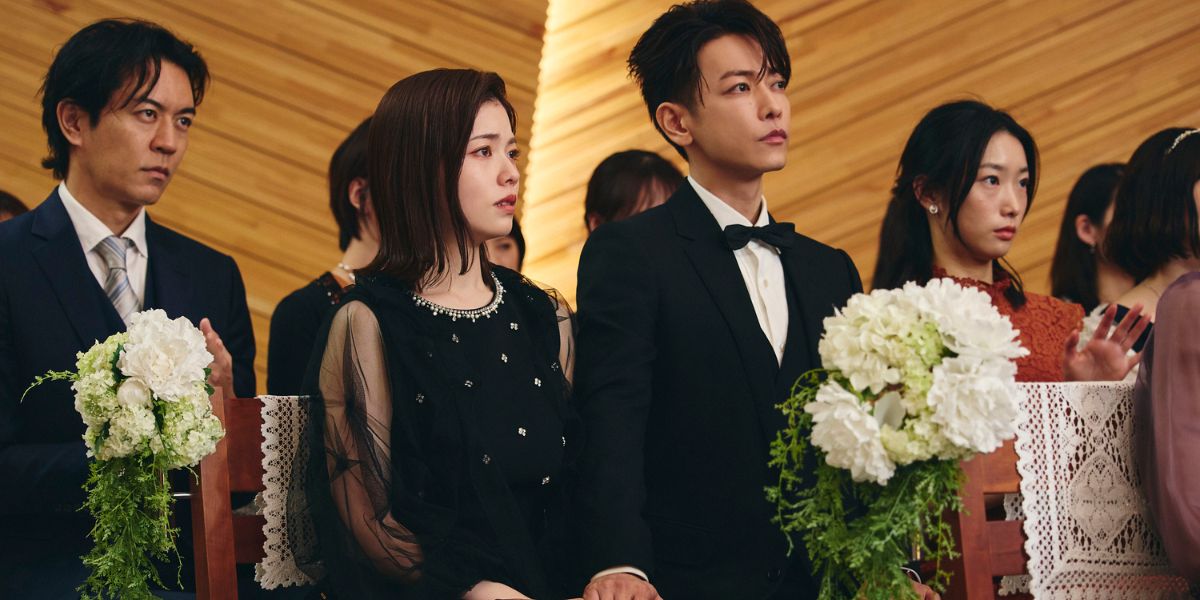The Japanese remake of Marry My Husband has become one of the biggest drama successes of 2025. Released as an Amazon Original, the series concluded its run last month but continues to draw wide attention. Within its first month, it set a new record for domestic viewership among Amazon Originals in Japan and achieved an IMDb score of 8.2.
Adapted from the popular Korean web novel and drama, the Japanese version follows the same basic premise: a woman betrayed by her husband and best friend is given a second chance at life through a time leap. Yet, instead of being a simple copy, the Japanese series stands out for its tone, characters, and cultural details that give the story a fresh flavor.
While the revenge element remains, the Japanese production leans into themes of regret, human weakness, and second chances, offering a slower but emotionally layered narrative.
‘Marry My Husband: Japan’ Is a More Emotional Human Drama
The Korean Marry My Husband gained popularity as a fast-paced revenge story. Park Min Young’s character Kang Ji Won returned to the past to change her fate and punish her betrayers.
The Japanese version, however, shifted the focus. Koshiba Fuka plays Misa, who also discovers her husband Tomoya (Yokoyama Yu) is cheating with her best friend Reina (Shiraishi Sei). After being killed, she wakes up 10 years earlier with a chance to change everything.
Instead of focusing on revenge, the Japanese remake explored regret, hesitation, healing, and the slow process of confronting betrayal. Critics have described it as a “Ferris wheel-style drama,” in contrast to Korea’s “roller coaster.” This slower, reflective approach appealed to viewers looking for more emotional realism.

Takeru Satoh Is Not the Typical Male Lead
One of the biggest talking points was Takeru Satoh’s performance as Suzuki Wataru, the Japanese counterpart to Na In Woo’s Ji Hyuk in the Korean version.
In Korea, Ji Huk was portrayed as the perfect, reassuring, and dependable savior. In Japan, Wataru is written as awkward, blunt, and shaped by regret. His first encounter with Misa is not heroic but slightly rude when he bluntly comments that her scarf doesn’t suit her. Yet as the story develops, his emotions are expressed through subtle gestures and hesitant actions.
Episode 4, for example, featured a quiet office moment where Wataru gently touched Misa’s hand. Though small, the gesture became a viral clip on social media, as viewers praised how much he communicated through silence. Many fans highlighted how refreshing it was to see a male lead who was imperfect yet genuine.
Villains Who Are More Than Just Evil
In the Korean version, the villains were over-the-top and almost theatrical. Characters like Yura (BoA), Soo Min (Song Ha Yoon) and Min Hwan (Lee Yi Kyung) embodied extreme betrayal and selfishness. Their downfall delivered satisfying justice but leaned heavily into melodrama.
Reina, played by Shiraishi Sei, was more than just a scheming friend. She carried her own sense of despair and loneliness, which made her betrayal feel more tragic than purely malicious. Tomoya’s selfishness was also tied to insecurity and an intense need for recognition.
Reina and Tomoya were depicted as villains who were despicable yet still recognizably human. The ending suggested that different choices could have led to different futures.
Japanese Cultural Details Enrich the Story
One of the standout aspects of the remake was its integration of Japanese culture into the storyline.
- Instead of working at U&K, the Korean food giant, Misa is employed by Suzutoya Holdings, a company with roots in traditional Japanese confectionery.
- Workplace projects featured Shine Muscat grapes, a specialty fruit in Japan, unlike the food marketing projects of the Korean version.
- Misa and Reina’s childhood bond was symbolized by friendship bracelets, a trend from 1990s Japan.
- The café “Mamekamedo” became a recurring setting tied to Misa’s most cherished memories.
Even the time-leap theme carried a cultural twist. The Korean drama used BTS hits like Dynamite and Spring Day. The Japanese remake replaced them with references to films like Your Name and La La Land. The remake also nods to real-life events such as the bubble tea boom, the COVID-19 pandemic, and baseball star Shohei Ohtani’s global rise.
Why the Japanese Version Became a Success
The Japanese Marry My Husband succeeded because it was not a simple remake. It stayed true to the gripping premise of betrayal and time-leap revenge but reshaped it with a slower, more emotional pace and layered characters. By avoiding absolute portrayals of good and evil, it resonated with audiences who saw their own flaws and regrets reflected on screen.
Marry My Husband: Japan is now available to stream on Prime Video worldwide.


